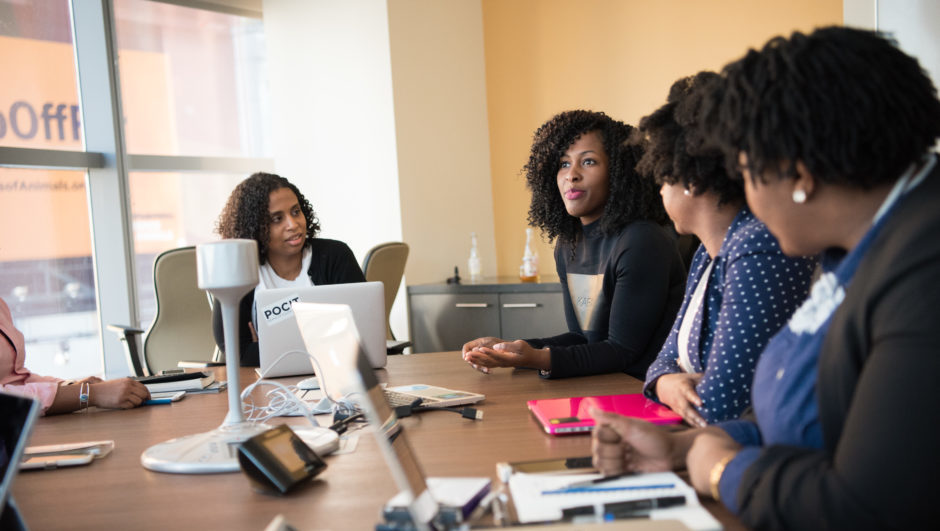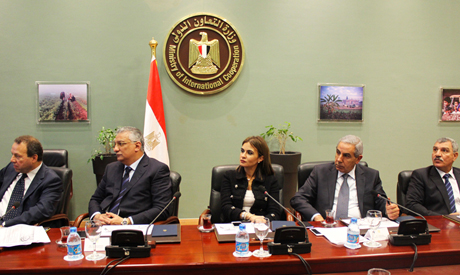Entrepreneurship and Loneliness ,Finding connection when you feel alone
By Reid Hoffman
It’s lonely at the top. It’s even lonelier to be an entrepreneur. But you don’t have to go through this struggle alone.
In this essay, which is based on a Greymatter podcast episode I recorded with my Blitzscaling co-author Chris Yeh, I discuss why it’s so lonely to be an entrepreneur, how I dealt with this challenge through both success (LinkedIn) and failure (SocialNet), and how entrepreneurs can find allies and aid in their struggle against loneliness.

WHY IT’S SO LONELY TO BE AN ENTREPRENEUR
You’ve convinced an entire community to jump off the cliff with you.
People often conflate the loneliness of being a CEO with the loneliness of being an entrepreneur. While both are lonely journeys, the entrepreneur’s journey is even lonelier than that of the CEO.
Read also:Somalia Receives $8.5 Million Grant in Support of Clean Energy Businesses
It’s lonely being CEO. You have to make and take responsibility for the toughest decisions, and being a boss makes it difficult to also be a friend to others in the organization. This is one of the reasons why CEO groups like YPO exist – to give CEOs a social group of peers who understand their challenges.
But it’s even lonelier being an entrepreneur. The founder’s journey is even more intense and challenging. I often say that starting a company is like throwing yourself off a cliff and assembling an airplane on the way down. That’s terrifying enough. But even more terrifying is the fact that you’ve convinced an entire community of people you care about to throw themselves off the cliff with you. This includes people who choose to jump, like your co-founders, your employees, your investors, as well as those whom you’re dragging along for the ride, like your family and the families of your employees.
Read also:Kenya’s BrightGreen Wins This Year’s Africa Business Heroes Competition From The Jack Ma Foundation
And as you’re all in free fall, with the rocks looming below, everyone is looking at you and saying, “You convinced us that this was a good idea, and that it’s going to work, so we’re here with you.” Meanwhile, no matter how confident you are, you also know, on some level, that the vast majority of startups fail, and that the default outcome is that you and all the people who trusted you are going to end up smashing into the ground.
Ouch.
Things will get stressful, and you’ll find yourself in the shadow of the valley of death, wondering whether you’ll make it. Any rational person in that position would feel fear, uncertainty, and doubt, but founders can’t afford to spread those feelings to the other people in the organization. Even if you have co-founders to share the burden, it’s still a heavy one.
FACING LONELINESS AT SOCIALNET
My first startup, SocialNet, was a lonely and stressful journey, and I still feel some of its effects today. I’m still dieting to lose some of the weight I gained as an entrepreneur. I think I was one of those entrepreneurs to whom food was a stress relief. (It didn’t help that since meals are often a part of recruiting and sales, I was eating out three meals per day.)
Read also:Technology has Become a Major Driver for an Inclusive Trading Market
One of the main factors that made my SocialNet journey so challenging was that so many different aspects of it were new and unknown, from the product category (at the time, there was no such thing as social networking) to the fact that it was the first startup for many of the team members, including me. As a result, I ended up spending a lot of time and emotional energy trying to persuade people to join me, and then once they had joined, to keep them from leaving.
Each day, I faced the challenge of not even knowing what the next day’s stresses would be. It affected the rest of my life, and my situation became even lonelier when I broke up with my girlfriend at the time.
Ultimately, the company failed. I tried to learn what I could from the experience, and do better the next time.
LINKEDIN: LESSONS IN MANAGING LONELINESS
The second company I founded was LinkedIn. My LinkedIn experience was substantially better than my SocialNet experience. I started the company with some people from SocialNet and some people from PayPal (where I was part of the founding team and which I had helped go public and be acquired by eBay). We had much more startup experience, and understood in advance that the journey would be a difficult one over uneven ground. And from an emotional perspective, we understood that providing positive energy for each other along the way would be a key factor to help us succeed.
One of the ways I managed the loneliness of entrepreneurship was finding more well-prepared partners for the journey. We all knew that we were jumping off a cliff together, and unlike SocialNet, the team had realistic expectations about the risks they were taking, rather than simply saying, “Sounds good to me, Reid!”
Yet even at LinkedIn, we had those valley of the shadow of death moments when we thought, “Why did we think this was ever going to work?” At one point, I was driving to the airport to represent LinkedIn at an important conference, when one of my key executives called me up and said, “This is just too stressful, I’m out.” That was a lonely and stressful moment for me, since I couldn’t ask anyone else to solve the problem. So I told the executive, “I’m not going to get on my flight. I’m going to turn around and come to your house, and we are going to talk this through.”
This kind of thing happens at 99% of startups, and can happen even after your company is “successful.” Airbnb just held a highly successful IPO, but as Brian Chesky related on television afterwards, during the start of the Covid-19 pandemic, he thought the pandemic might destroy the entire travel industry, including his company. Fortunately, he and the rest of the team realized that they had amazing employees and an amazing community of hosts, and they found a way to successfully pivot the business.
When you’re facing a situation like Brian’s, or even the one I faced with my wayward executive, there’s no one you can go to throw a fit, or say, “I’m out.” As the entrepreneur and leader, you have to absorb the impact.
Read also:Kenya-based Pezesha Wins 2020 AFI Inclusive Fintech Showcase
And you will feel lonely, day after day. Seriously, seriously lonely. Your people don’t want you to explain your balanced investment thesis, lay out your strategy, and explain how you’re managing the risk factors. They just want you to say, “We’re going to win.”
I worried many times that if I confessed my fear, uncertainty, and doubt, that I’d be undercutting my chances of success. After all, doesn’t everyone extol the virtues of grit, persistence, and never giving up?
Actually, no. There are people who can embrace chaos and handle uncertainty, who understand that you can have reasonable doubts, yet still commit. One lesson I learned was to surround myself with people with whom I could talk frankly about the challenges of the journey, including the loneliness and fear, without their interpreting my candor as a lack of grit or conviction.
You don’t want to surround yourself with blindly fearless people, or blind optimists. You are facing a daunting challenge, and you need realists on your side. But you need realists who are confident that they have the ability to navigate that challenge, and will join the journey knowing that failure *is* possible.
Entrepreneurs should proactively build trusted bridges with folks (including investors and board members) who will embark on your journey with eyes wide open, helping you watch out for obstacles, rather than fearfully closing their eyes and relying on you to keep watch alone. They can contribute some of the essential persistence and chutzpah the organization needs. As Daniel Lubetzky, the founder of KIND, said on Masters of Scale, you need grit and wit so that you’re not just pounding your head against a wall, thinking that if you try hard enough, you’re bound to succeed.
Life is a team sport, not an individual sport. If you can get the right team on board, you don’t have to do it alone.
FRIENDS AND FAMILY
You need the support of friends and family, but for most entrepreneurs, friends actually matter more.
A lucky few might come from a family of entrepreneurs, but the rest of us need to rely on entrepreneurial friends for peer support.
Your loved ones are going to support you, but if they have no idea what it’s like to lead a startup, and don’t understand what you’re experiencing, their sympathy can only go so far.
One of the things that I probably should’ve done more before my entrepreneurial journey was to spend time with my friends who were entrepreneurs. This is one area where I collaborated with Peter Thiel. I had been talking with him for nearly two years about my experiences at SocialNet. At the end of many days, and the end of every week, I’d tell Peter about the craziness of being an entrepreneur, and all the things I wish I had known earlier. So when he and Max Levchin decided to start the company (Fieldlink!) that eventually became PayPal, both he and Max went to their best entrepreneurial friend and asked them to join the board. Peter asked me, and Max asked Scott Banister.
Another approach is to join a community like Endeavor or the Entrepreneurs’ Organization (EO) where you can learn from your peers. One of the classic counterintuitive rules of entrepreneurs from Blitzscaling is “Let Fires Burn”. Startups always have more problems than time and resources to solve them. If you try to put them all out, you’ll fail, and you’ll also burn out. The art is to let less important fires burn, while extinguishing the ones which are an immediate and deadly threat. But how do you know that you’re prioritizing the right fires? When you’re part of an entrepreneurial peer group, you can ask, “Am I prioritizing the right fires? Is there a better sequence of operations I should follow?”
These aren’t the kinds of questions that most of us can ask our parents or other loved ones. Your parent can tell you, “I give you my unconditional love and belief,” but what you really need is advice on which term sheet to choose.
SEEKING HELP
Don’t hesitate to look outside your organization to get help managing the loneliness of entrepreneurship. If you find yourself depressed, seek the help of mental health professionals. If you simply feel the need for moral support, turn to your spiritual leaders or your mentors. I sometimes hear entrepreneurs refuse to seek help because they “don’t want to be a burden.” Seeking help doesn’t mean you’re dumping your burden on someone else (unless you do so constantly, and without taking responsibility). Reaching out to someone else for help can actually be a gift; you’re showing that person that you trust them enough to make yourself vulnerable. Talk with people who are sources of wisdom, strength, and perspective.
I also believe that one of the techniques that is underused in Silicon Valley is engaging a team coach. Executive coaching is important and valuable, but companies succeed or fail as a team, not as individuals. One of the things I took away from Trillion Dollar Coach, which Eric Schmidt, Jonathan Rosenberg, and Alan Eagle wrote about the late, great Bill Campbell, is the power of a coach who works with the entire executive team.
I never got a chance to work with Bill Campbell, though I did meet him a few times. But I did get a chance to work extensively with Fred Kofman, whose books Conscious Business and The Meaning Revolution have been a part of my journey. I sometimes describe Fred as a priest of Adam Smith’s Wealth of Nations, because he focuses on meaning and brings spirituality to capitalism. Like team coaching, the focus on meaning helps the entire team sustain itself emotionally through the challenges of entrepreneurship.
Another place to get help is in the form of content, like the books listed above. A lot of people think about entrepreneurship content in terms of hard skills and tactics. How do I drive viral growth? What is the secret to better SEO? These hard skills are important, but entrepreneurs can benefit from softer learnings as well.
For example, one of the things I’ve come to appreciate as a result of hosting Masters of Scale is that emotional connection can be as important as hard skills. The power of the podcasting format is the way it can provide emotional sustenance to so many listeners through the intimate connection of hearing a human voice in your ear, talking about the same kinds of challenges and problems they face in their own lives, with an optimistic message from those who have made it through similar challenges.
Entrepreneurs need to hear that “yes, they can,” that hope is rational, that their hero’s journey can have a happy ending, and that their success can be their big contribution to the world. They need to understand that their dogged efforts are noble, not foolish, and that there are others who are also trying to build a better future together.
CONCLUSION
2020 has been unprecedented in so many ways. We’ve had physical disasters like the Covid-19 pandemic and widespread wildfires, and we’ve had political fires all over the world. These difficult times of stress, fear, doubt, suffering, and yes, loneliness make the entrepreneurial journey incredibly challenging. But those difficult times are also a chance to show your heroism.
Even if you’re struggling, like most of us are, you can show yourself, your team, and the rest of the world, “Yes, I’m navigating these challenges. Yes, I’m rebuilding from the devastating blow of Covid-19 and economic shutdown. Yes, you can get through this too.”
One of the best metaphors for entrepreneurship is pioneering. But pioneering doesn’t mean setting out into the wilderness alone. It means bringing people together into a wagon train, helping each other get started, and supporting each other through the long and arduous journey.
Thanks to the miracle of global science and collaboration, we have multiple Covid-19 vaccines that are rolling out around the world. The new challenge we face in 2021 is to recover and rebuild from the disasters of 2020, and part of what we’ll desperately need is entrepreneurship and entrepreneurs to build new industries and create new jobs.
If you’re one of those entrepreneurs, this is your chance to express your leadership and heroism. But you can’t and shouldn’t go it alone. Rely on your allies, rely on your friends, rely on your colleagues, rely on your mentors, and rely on the people who are close to you. Entrepreneurship is a team sport; let’s make 2021 a winning year.
Reid Hoffman is the founder of LinkedIn
Kelechi Deca

Kelechi Deca has over two decades of media experience, he has traveled to over 77 countries reporting on multilateral development institutions, international business, trade, travels, culture, and diplomacy. He is also a petrol head with in-depth knowledge of automobiles and the auto industry























